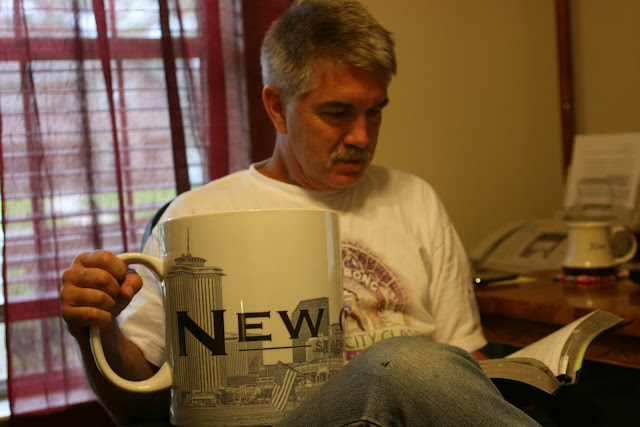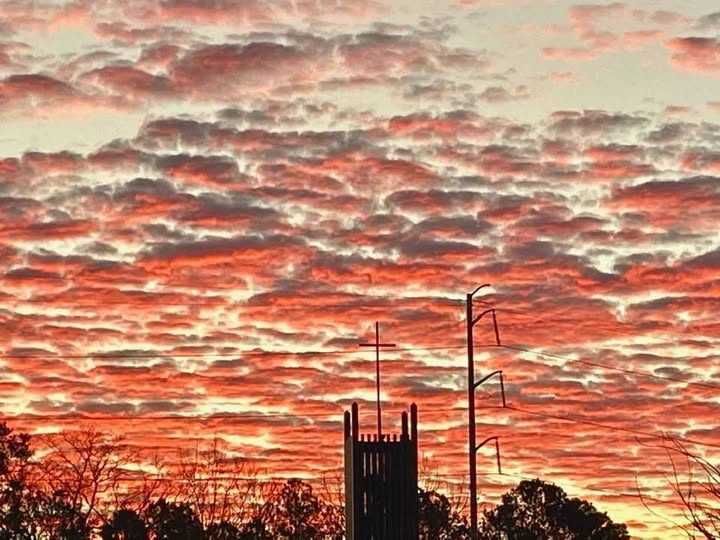A Prayer for DBC
God as we prepare to take communion, we have been reminded that Your Spirit in us produces character traits that make us more like Jesus. Many of us learned the Fruit of the Spirit as a list, a rhyme, or a children’s song. But You meant it to be so much more. You meant it to be a description in terms a human could put on paper of the richness You intend to invest in us. You meant it to be a gold standard of good qualities that You produce to compare with a list of bad decisions we make on our own.
Thank you that You care for us. You have placed us a little lower than the angels, have filled us with Your power and Your glory. You put us here to care for Your creation and to establish relationships with other people and to work productively for the good of our homes, church, community and world. You have shown Yourself in amazing ways here at DBC and we thank You. You are present among us still in the Person of the Holy Spirit. Thank you that You comfort, encourage and guide us. Thank You–painfully–that You rebuke, admonish, and correct us.
God forgive me when I–when we--reduce this mighty work of Your Spirit to a list of self-improvement goals. I bow before you in worship and thanks that You choose to work this way through us. As the Spirit works in us, we want to see growth in all these areas. Love AND joy AND peace AND patience AND kindness AND goodness AND faithfulness AND gentleness AND self-control.
You wish for us to love as You loved us, sacrificially and without regard to a person’s appearance or background. You love us so much that You sent Jesus. You love us even though we can’t stop making bad choices. You love us yesterday, today, and forever. May we be filled with such love that seems to fertilize all the other fruit of Your Spirit.
You wish to fill us with joy, the inner contentment that does not depend on circumstance, but allows us to see some things as You see them. You showed such joy in your laughter with Your followers and with those whom You healed. You desire for us a joy that is not dependent on circumstance but on the presence of Your Spirit in us, giving us a quiet confidence that You are working in us for our good and Your glory.
You wish for us to have peace, a deep inner tranquility that is beyond the comprehension of many around us. You demonstrated such peace, even as you were misunderstood, persecuted, and crucified because You had such confidence in the sovereign plan of the Father.
You want us to have patience in other people, in ourselves, in the timetable of Your plans for us and for our church. You modeled such patience with children, with persons with challenges, and with us. May we be patient when we are cut off in traffic, when we are misunderstood at work, and when we think You should do this or that in our world. Jesus, come quickly, but let us have patience and understanding as You delay in order to invite more people into Your Kingdom.
You desire for to be kind as You were kind and to embrace that it is Your kindness that led us to repentance. Your kindness drew unlikely skeptics to Yourself, some who eventually believed and some who did not. Your kindness tolerated people who did not, do not and will not allow Your love to break through to have one more chance, two more chances, hundreds more chances to repent from sin and follow You in obedience, worship, and community.
You are a good God and Your Son is the Good Shepherd and goodness and generosity is what You desire for us. We pray to be filled with it. We pray that as we are filled, we would reflect Your goodness as we relate to those around us.
You have been faithful through the ages and you are faithful now. You will be faithful to complete the good work You began in us. We pray for that faithfulness to be in us as we relate to You and to the people around us–both those whom we love and those whom we are learning to love.
You wish for us to have the controlled strength that is called gentleness, so that we can face adversity and challenge even as our Savior faced the trials that led to His earthly death. You said we were blessed if we were meek, that we would inherit the earth. You want to fill us with humility and gentleness, not thirsting for power, but for righteousness and that as strange as it seems, we would see You at work.
Perhaps hardest to pray honestly that we would receive is self-control. We enjoy our temper tantrums, but we read of the self-control that You showed as Satan tempted You in the wilderness. You remained on the cross because it was the Father’s plan. You did not lose Your temper with the slowness of Your followers then and now to understand what You came to earth to do. You put up with our questions and our self-righteousness and our reluctance to do the next right thing. May we be self-controlled because Your Sprit controls us, and to understand that as we give up control, we yield to Your control.
Father, we know that the ways of the world will always present us with tempting, and sometimes very convincing, counterfeits to this Fruit of Your Spirit. We know in our heads that this fake fruit will leave us empty. Fill us with each of these fruits. Cultivate them, let them build on one another. Let them ripen to the point that they bring love, joy, peace, patience, kindness, goodness, gentleness and self control to a world that desperately needs them. May they produce in us a deeper love for Your kingdom and for the souls that You love so deeply.
We want to make a difference in our families, influence our communities, and provide hope for our world. We know that as You fill us with these character qualities we will become better people, but better is such a small goal when what You desire is that we become like Your Son. May we be passionately more like Jesus. May we empty ourselves so You can fill us with the Fruit of the Spirit so that we can be instruments of change. May we be filled with the Spirit so that our words to “Love God, Love People, Make Disciples, and Make a Difference” can be much more than words. May we see Your kingdom come on earth as it is in heaven. May Your will be done.
May we be wise with our time, our talents, our resources. May we welcome our new pastor because he is the one whom You sent to lead us and teach us. May we see greater things because You promised that we would. May persons who are trying to decide what to do with You jump in with both feet, acknowledging You as Lord and Savior. May our baptistery be filled, our ego be emptied and our worship be pleasing to You. As we take this Holy Communion, may it remind us of the ultimate demonstration of love that You expressed by sending Your only Son to provide a forgiveness for our sins so that we can even have this conversation with You.
In the name of the Father, the Son, and the Holy Spirit
Amen





